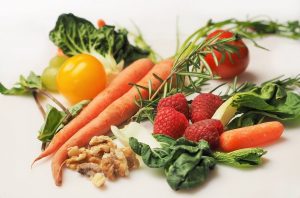Introduction – The Twitter Expert Connect Assignment
The Twitter Expert Connect Assignment is an opportunity given to us to connect with experts on a subject of our choice. I chose to study about nutrition for optimal muscle hypertrophy, a subject I’m interested in.
Summary
For this project, I followed a lot of different people who were either experts, very experienced, researchers, or other sources of credible information.
–@shredbyscience: Shredded by Science: SBS is an organization that owns an academy; they don’t make much content themselves, but they regularly link to other research by experts that are unknown to me.
–@SandCResearch: Chris Beardsley is a strength training expert, who wrote a research review on the topic.
–@dhamilton82: D. Lee Hamilton is a professor of Health and Exercise Sciences.
–@BradSchoenfeld: Dr. Brad Schoenfeld is a researcher and educator on muscle building and fat loss. He wrote a book on the science and development of muscle hypertrophy. He is very popular in the fitness industry, as he conducts many insightful pieces of research on the subject. I asked him about the importance of macronutrient tracking in a diet.
–@AndyBeetroot: Professor of applied physiology, exercise physiology, sports science, nutrition, and training. Because he sometimes posts some content/research related to the subject, I asked him whether training or nutrition was more important for positive muscle adaptation.
–@YLMSportScience: This organization focuses on easily digestible infographics based on research, about exercise and nutrition science. They are very active. I asked them their opinion on whether nutrition or training was more important, and more specifically whether there was some truth in the “80% nutrition” stereotype for gaining muscle.
–@stirproftip: Kevin Tipton is a professor of sport, health and exercise science. He teaches exercise, nutrition, protein nutrition, and metabolism. I asked him about the ketogenic diet because it is a diet in which protein is tracked constantly as it can alter the production of ketones, and he studies exactly that.
–@MattJonesNC: Matt Jones is a nutritional coach for athletes across the world. I asked him whether his athletes were put into the bodybuilding-inspired periods of body recomposition like “bulks”.
–@JeffNippard: Jeff Nippard is a YouTuber who heavily supports himself with science (new articles, controversial research) to educate people on exercise and nutrition. I asked him what he thought of the no macro-tracking approach of bulking.
–@JosephAgu: a nutrition consultant, writer, and speaker.
–@healthpsycNZ: An organization of academics who teach health psychology.
–@examinecom: The Internet’s largest (and one of the most reliable) compendium of nutrition and supplement research. I asked them if there was any evidence pointing to the fact that nutritional periodization was effective/necessary to optimize muscle gain.
–@MartinNutrition: A clinical performance nutritionist.
–@JoseAntonioPhd: Professor of nutrition, studies Beta-Alanine (protein). I asked him if he could recommend a trustworthy database on which I could find research on nutrition and training science by authors like him.
–@MuscleScience: A researcher on the effect of exercise, nutrition and aging and musculoskeletal function.
–@BioLayne: Dr. Layne Norton owns a nutritional science Ph.D. and is a natural pro bodybuilder. He is very active and is writing a book on competition prepping. Because his approach to dieting is very unorthodox, I asked him what his nutrition beliefs (what philosophy he applied himself). I also asked him if, as a powerbuilder, he periodized his nutrition.
–@laurent_bannock: Laurent Bannock is a sports nutritionist and exercise physiologist. I asked him whether he was aware of any evidence supporting that an excessive caloric surplus during a “bulk” had any negative effects on muscle gain.

I believe that the questions I asked some of the experts I followed could have helped me understand further nutrition for positive muscle adaptation because all of my questions are directly on the subject of nutrition or diet organization.
Reflection
I had varying results after I sent my questions to the experts. Most of them did not answer; @examinecom answered by saying that the question wasn’t something that they had “delved into much”. @JoseAntonioPhD directed me to the PubMed database, and finally, @stirproftip answered that there was no evidence proving that the ketogenic diet was more effective than other diets for muscle gain.

Overall, it could be said that I did not get the quantity nor quality of answers I had hoped for. Two of the people who responded simply answered that there was no existing evidence that could support an answer to my question. The only person who provided an answer that I found to be appropriate was the person who directed me to the PubMed database, which makes me think that the experts would have responded more/better to simpler questions. I think my questions were too complicated, which must have translated into the expert’s inability to answer.
Unfortunately, I did not continue the conversation with the experts who responded. I did not think that any of the answers sparked a sufficiently interesting conversation.
But overall, I think that learning about the knowledge of experts directly through social media is a very interesting potential way to seek information. As long as the question is interesting in the eyes of the expert, I’m sure that they will go out of their way to answer — as I’ve seen it done before.
I believe that the hardest part of the Expert Connect Assignment was to find the experts to learn from– checking whether they were appropriately knowledgeable and active was the most difficult part of the process. But given that is done successfully, I have no doubt that interacting with the experts in a field of research is the most reliable way to find information.
Bibliography
Tank. “August 11, 2017: Beef Bourguignon Served on Egg Noodles w/ Roast Vegetable Medley for One. Bulking with Style.” Flickr, Flickr, 11 Aug. 2017, www.flickr.com/photos/brandedbulltank/36467386796.
TeroVesalainen. “Thought.” Wikimedia Commons, Pixabay, 5 Mar. 2017, commons.wikimedia.org/wiki/File:Thought-2123970_1920.jpg.














